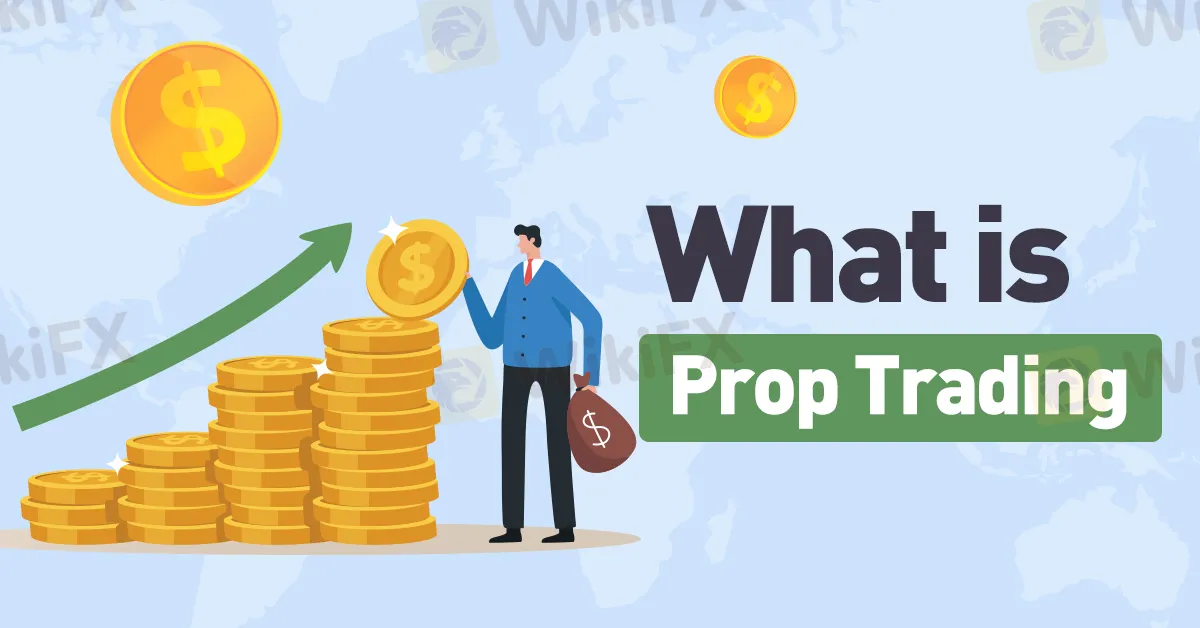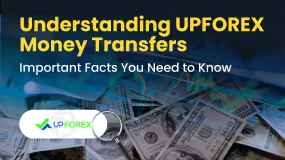Abstract:Proprietary trading, often shrouded in mystique, offers traders the prospect of substantial rewards and unique challenges within the financial landscape. Keep reading to find out if you are suitable to be a prop firm trader!

In the dynamic world of finance, Proprietary Trading Firms, often referred to as “prop firms,” have gained prominence for their unique approach to trading. These firms play a significant role in the financial markets, yet their operations may seem complex to the uninitiated. In this article, we will demystify the concept of prop firm trading in straightforward terms.
Proprietary trading, or “prop trading,” is a trading strategy employed by financial institutions where the firm uses its capital to trade various financial instruments, such as stocks, bonds, commodities, and currencies. The objective is to generate profits from short-term market fluctuations, rather than simply holding investments for the long term.

Firm's Capital: In prop trading, the firm's own capital is at risk, rather than clients' funds. This sets prop firms apart from traditional investment firms, like mutual funds or brokerage houses.
Trading Styles: Proprietary trading firms employ a range of trading strategies, including high-frequency trading, day trading, swing trading, and algorithmic trading. These strategies are often tailored to capitalize on market inefficiencies or arbitrage opportunities.
Risk Tolerance: Prop firms are known for their risk-taking culture. Traders are encouraged to take calculated risks with the aim of generating high returns. However, this also implies that losses are absorbed by the firm's capital.
Profit Sharing Model: One of the most attractive aspects of prop trading for traders is the profit-sharing model. In this arrangement, traders receive a percentage of the profits generated from their trading activities. This can be a substantial incentive to perform well, as the more profitable the trader is, the higher their potential earnings. Once a trader joins a prop firm, their performance is continuously evaluated. Profits, losses, risk management, and adherence to the firm's trading strategies are closely monitored.

Proprietary trading offers a range of advantages for traders. Firstly, the profit potential is substantial, thanks to the profit-sharing model, where successful traders have the chance to earn significant returns on their investments. Additionally, prop firms expose traders to diverse strategies, trading styles, and asset classes, enabling them to broaden their skills and knowledge, thereby enhancing their adaptability in the ever-changing financial landscape. These firms also invest heavily in advanced technology, providing traders with access to cutting-edge tools and resources, which can significantly enhance their trading efficiency. Furthermore, prop traders benefit from the training and mentorship offered by experienced professionals within the firm, fostering continuous learning and skill development.
However, it's important to acknowledge the associated risks of proprietary trading. Market risk is a significant concern as prop firms use their own capital for trading, making them vulnerable to market fluctuations. Sustained losses can have a substantial impact on the financial health of the firm, and subsequently, on the traders involved. Moreover, the environment in prop trading is known for its fast-paced and competitive nature, which can be stressful and demanding. Traders must be mentally and emotionally prepared to handle the pressure that comes with such a high-stakes field. Lastly, the lack of job security is a real concern, as trading performance is closely monitored, and underperforming traders may face the risk of being let go, making it imperative for traders to continuously demonstrate their worth within the firm.
If you're considering a career in proprietary trading, a strong education, dedication, and the ability to manage risk are essential. While prop trading can be challenging, it can also be rewarding for those who thrive in this high-stakes environment.
To become a trader at a prop firm, a strong educational background in finance, economics, or a related field is often required. Additionally, proficiency in data analysis, trading software, and risk management is essential. Some prop firms may require traders to invest their own capital to some extent. However, many firms offer trading capital to traders, allowing them to start with less personal investment. Education is the key to a traders success. Many prop firms provide comprehensive training programs to teach new traders the ins and outs of their proprietary trading strategies. These programs are designed to prepare traders for the challenges of the financial markets.
Notably, proprietary trading firms often operate in a regulatory grey area because they are not traditional brokers or investment firms. This lack of direct regulation makes it essential for aspiring traders to conduct thorough due diligence before joining a prop firm. Without the safeguards provided by regulatory oversight, traders must carefully assess a firm's reputation, track record, financial stability, and trading practices. This due diligence helps traders make informed decisions and mitigate the inherent risks associated with unregulated prop trading, ensuring they partner with a reputable and responsible firm.












